Relevance: Sociology

The sociology of knowledge is the study of the relationship between human thought and the social context within which it arises, and of the effects that prevailing ideas have on societies.
Deals with broad fundamental questions about the extent and limits of social influences on individuals’ lives and with the social-cultural basis of our knowledge about the world.
Complementary to the sociology of knowledge is the sociology of ignorance, including the study of nescience, ignorance, knowledge gaps, or non-knowledge as inherent features of knowledge-making.
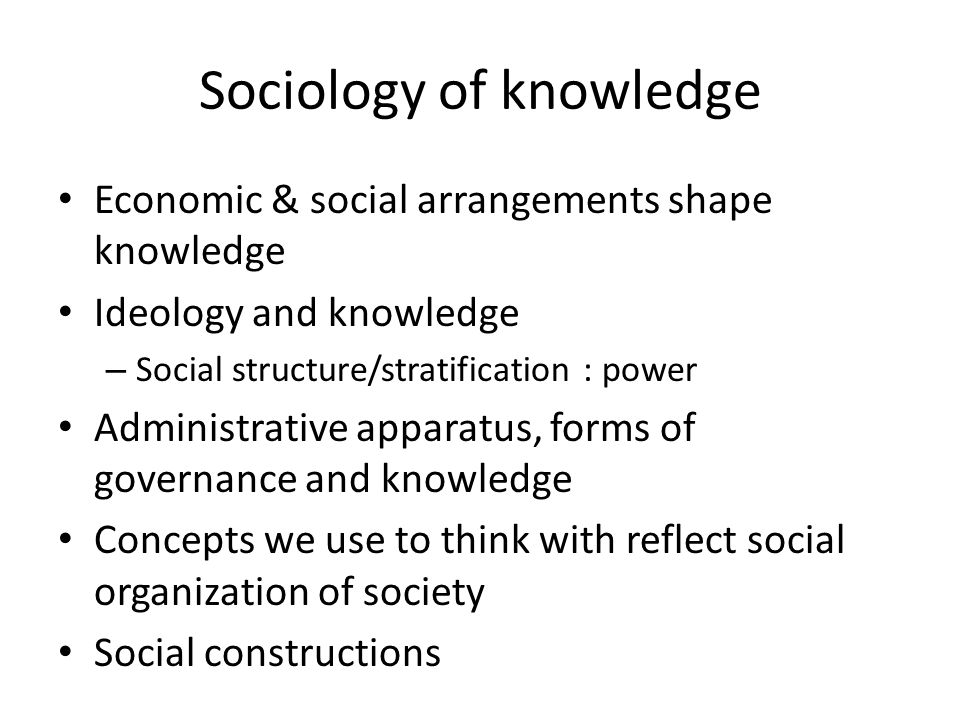
Mannheim focuses largely on the role that ideology plays in our representations of the workings of the social world within which we live.
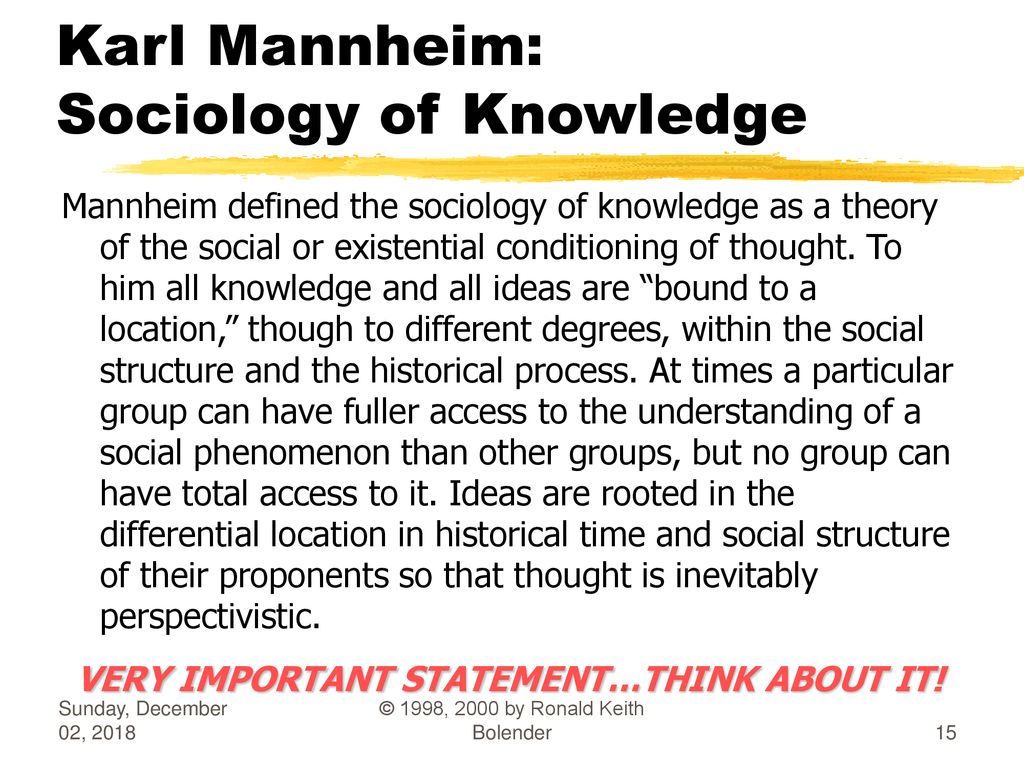
It is worth observing that this field asks some of the same questions that the sociology of science poses as well. Robert Merton, for example, wanted to understand more fully how the institutional settings of scientific research conditioned the creation of scientific knowledge.
A complication arises when we turn these analytical questions towards the content of social beliefs and presuppositions.
Because here there is a connection between knowledge and interests: beliefs like “fixed rent land tenure is an efficient system for producing agricultural innovation” have definite and different consequences for various actors in society — landlords, sovereigns, peasant proprietors, and tenant farmers. So what appears to be a factual statement about incentives and farming turns out to have different effects on various actors’ interests.
This is where Marx’s ideas of ideology and false consciousness come in: various classes have an interest in favoring or disfavoring certain ways of looking at the world. Marx might put the point along these lines: one’s position within the system of property and technology introduces a bias into one’s beliefs about how the world works.
Mannheim’s theory:
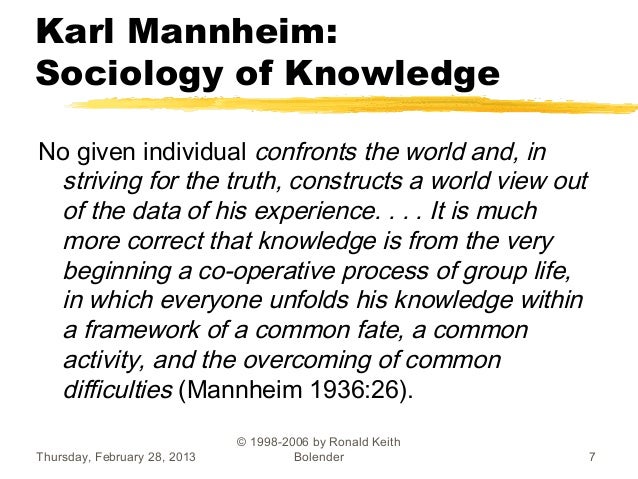
Mannheim opens his book with these words in the expanded English edition of 1936:
The principal thesis of the sociology of knowledge is that there are modes of thought which cannot be adequately understood as long as their social origins are obscure.
The sociology of knowledge seeks to comprehend thought in the concrete setting of an historical-social situation out of which individually differentiated thought only very gradually emerges.
Strictly speaking it is incorrect to say that the single individual thinks. He finds himself in an inherited situation of thought which are appropriate to this situation and attempts to elaborate further the inherited modes of response or to substitute others for them in order to deal more adequately with the new challenges which have arisen out of the shifts and changes in his situation.
Many of these statements can be understood in terms of the general problem of beliefs about reality that human beings face in the world: we have perceptions and needs, and we are forced to arrive at concepts and explanatory ideas through which we can organize our perceptions and pursue our needs. Knowledge frameworks do not come to human beings full-blown; instead it is a major historical and cultural task to create such frameworks. And this is just as true for the problem of knowing how social relationships work as it is for understanding the workings of the natural world. The conceptual frameworks and explanatory hypotheses that we form are contingent and historical products, and they have a social history.
Mannheim argues in this 1936 introduction that it takes a certain level of complexity of society to permit us to even begin to notice the specific and controvertible presuppositions of our knowledge frameworks. Essentially, this is the period in which people with different interests and life situations come into communicative interaction with each other. Disagreement raises the possibility of cognitive criticism. Two ideas are particularly core for his sociology of knowledge, ideology and utopia.
The concept “ideology” reflects the one discovery which emerged from political conflict, namely, that ruling groups can in their thinking become so intensively interest-bound to a situation that they are simply no longer able to see certain facts which would undermine their sense of domination.
The concept of utopian thinking reflects the opposite discovery of the political struggle, namely that certain oppressed groups are intellectually so strongly interested in the destruction and transformation of a given condition of society that they unwittingly see only those elements in the situation which tend to negate it.
The intellectual activity of “unmasking” is an antidote for both of these frames of thought: a revealing of the distortions associated with a certain framework and a revealing of the interests that make these distortions understandable. And one needs to subject his/her own position to this same critical method: “As long as one does not call his own position into question but regards it as absolute, while interpreting his opponent’s ideas as a mere function of the social positions they occupy, the decisive step forward has not yet been taken”.
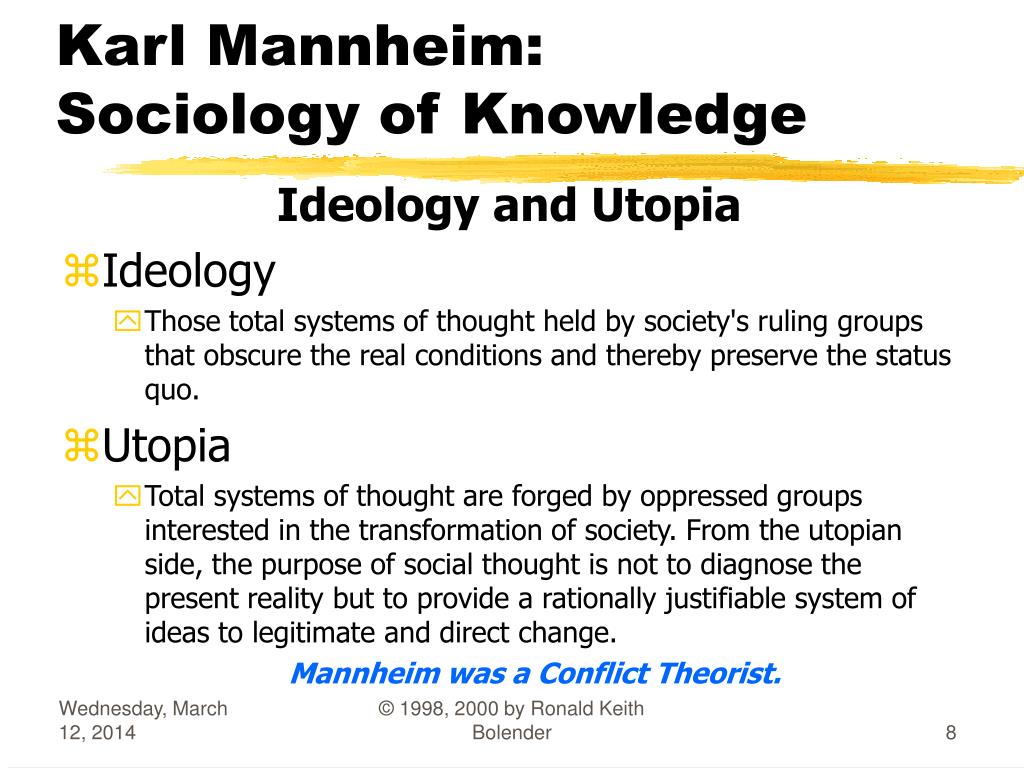
Here is an interesting passage on the historical relativity of conceptual systems:
Our definition of concepts depends upon our position and point of view which, in turn, is influenced by a good many unconscious steps in our thinking.
The first reaction of a thinker on being confronted with the limited nature and ambiguity of his notions is to block the way for as long as possible to a systematic and total formulation of the problem. [e.g. Positivism.]
Mannheim’s formulation of the issue, and his use of the concept of ideology, makes his theory appear to be an extension of Marx’s theory of historical materialism and his theory of ideology.
His reasoning seems to have many similarities to that of Weber, and the question he is ultimately interested in is the ways in which human knowledge and belief are themselves contingent, conditioned creative activities. His theory ultimately has much less to do with the burden of class interests on knowledge than would a more orthodox Marxist theory have had.
For more such notes, Articles, News & Views Join our Telegram Channel.
Click the link below to see the details about the UPSC –Civils courses offered by Triumph IAS. https://triumphias.com/pages-all-courses.php

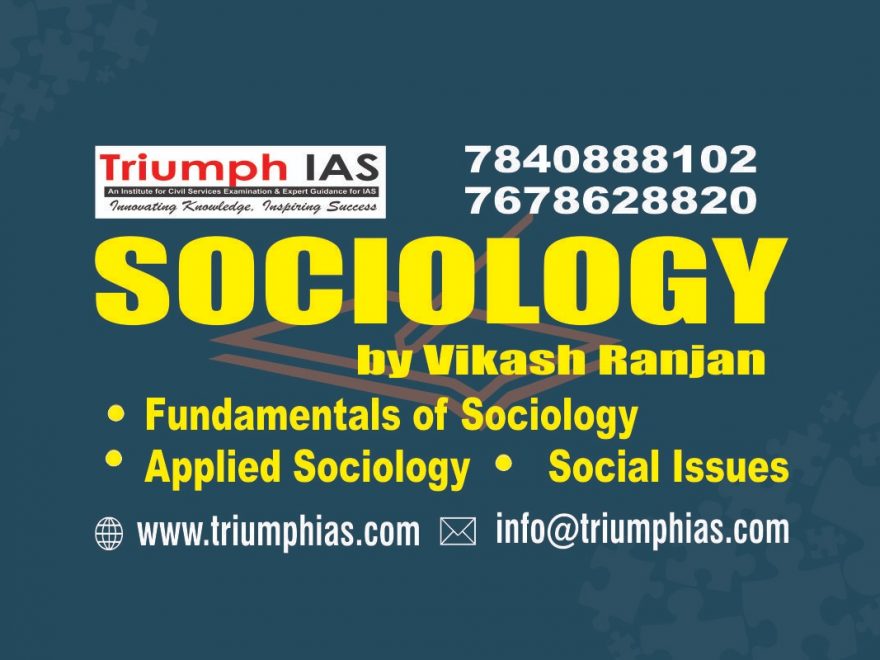
The book is very fair
Very good book